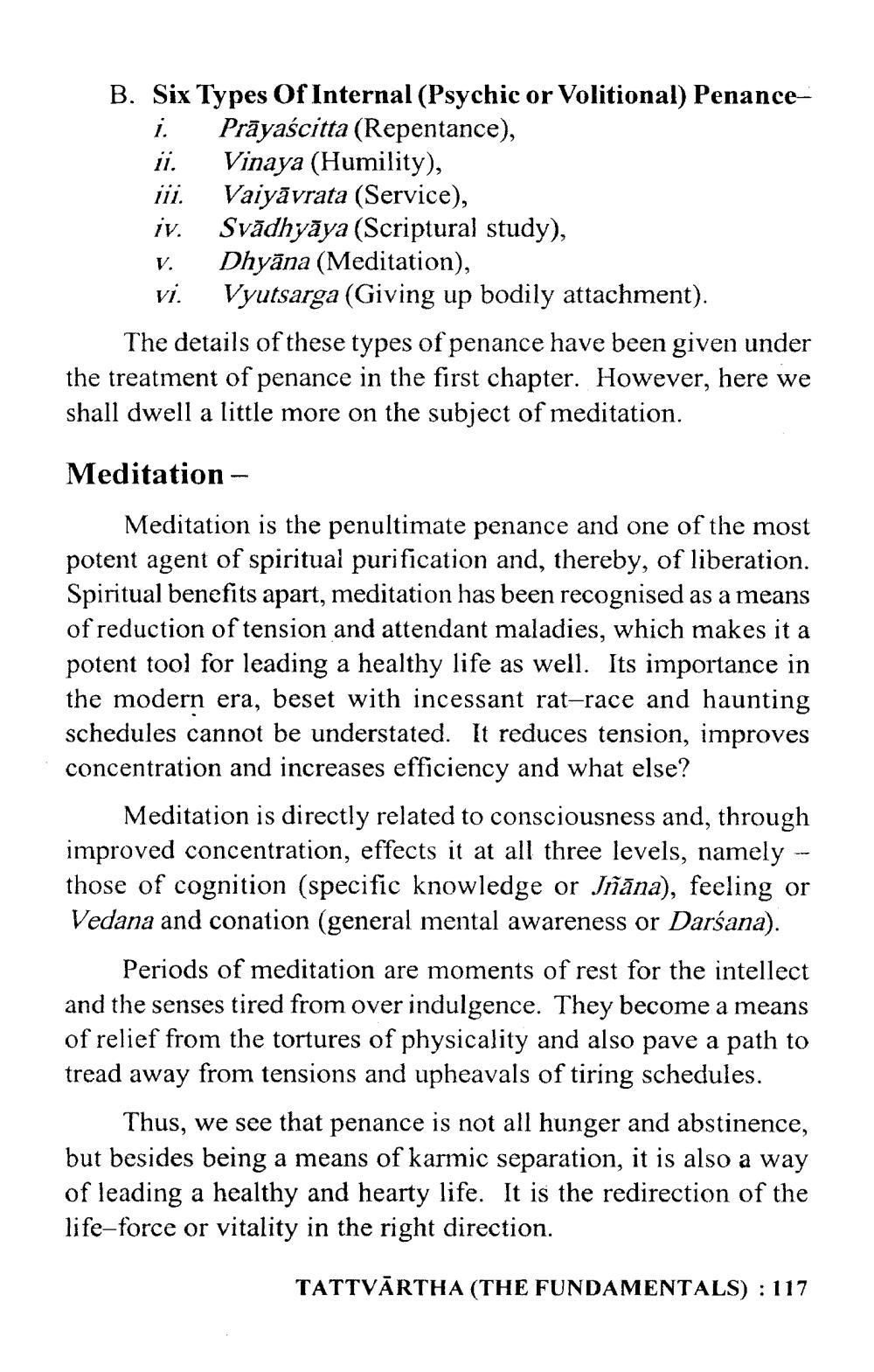________________
B. Six Types Of Internal (Psychic or Volitional) Penance -
i. Prāyaścitta (Repentance), ii. Vinaya (Humility), iii. Vaiyāvrata (Service), iv. Svădhyāya (Scriptural study), v. Dhyāna (Meditation),
vi. Vyutsarga (Giving up bodily attachment).
The details of these types of penance have been given under the treatment of penance in the first chapter. However, here we shall dwell a little more on the subject of meditation.
Meditation -
Meditation is the penultimate penance and one of the most potent agent of spiritual purification and, thereby, of liberation. Spiritual benefits apart, meditation has been recognised as a means of reduction of tension and attendant maladies, which makes it a potent tool for leading a healthy life as well. Its importance in the modern era, beset with incessant rat-race and haunting schedules cannot be understated. It reduces tension, improves concentration and increases efficiency and what else?
Meditation is directly related to consciousness and, through improved concentration, effects it at all three levels, namely - those of cognition (specific knowledge or Jñāna), feeling or Vedana and conation (general mental awareness or Darśana).
Periods of meditation are moments of rest for the intellect and the senses tired from over indulgence. They become a means of relief from the tortures of physicality and also pave a path to tread away from tensions and upheavals of tiring schedules.
Thus, we see that penance is not all hunger and abstinence, but besides being a means of karmic separation, it is also a way of leading a healthy and hearty life. It is the redirection of the life-force or vitality in the right direction.
TATTVĀRTHA (THE FUNDAMENTALS) : 117




